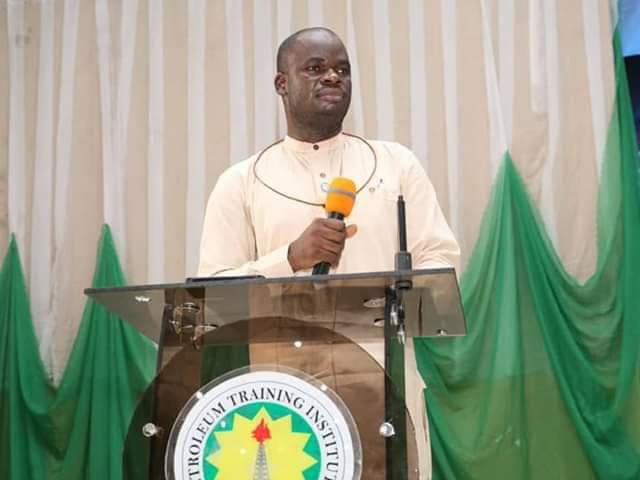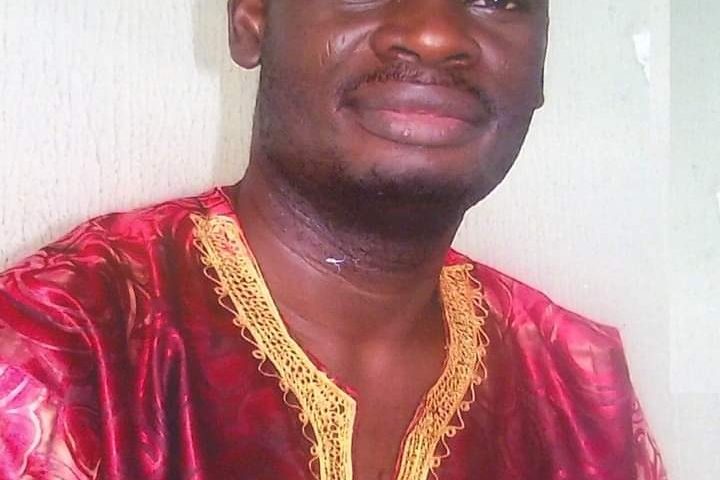By Sunny Awhefeada
We grew up cherishing the Pidgin English. Growing up in Evwreni and coming to maturation in Ughelli, the Pidgin English was our linguistic staple. The proximity of both settings to Warri made them a forte for pidgin to thrive. And we enjoyed the undiluted form of it. Since my earliest years were in Kaduna and Ibadan, I didn’t encounter the Pidgin English early enough like my later playmates in Evwreni and Ughelli.
But once I encountered the language I embraced it body, spirit and soul. While many of my friends at the University of Ibadan cherished my speaking pidgin and would buy me drinks just to hear me speak, my folks down South do not consider my pidgin strong enough. The reason for this is my not too early encounter with the language. Pidgin has a fluid and musical rhythm and it is not bound by syntactic rules. Whatever was against the grain of good English passed for pidgin. It is protean because it is facilitated by a creative and innovative impulse. That the Niger Delta is home to many different languages made the pidgin an easily acceptable means of communication among the people.
We cherished pidgin, but some of our parents, our teachers and our ajebota friends loathed it. It was at a time considered derogatory and one was sanctioned for speaking it in school. It was for this that the defiance of the language came to the fore. The more it was banned in primary and secondary schools the more the language thrived. Its propensity for humour, ease of rendition and apprehension endeared it to us. Pidgin did not die. It survived and it is flourishing. Today, besides it being the vehicle of stand-up comedy in Nigeria, it has become a significant field of academic engagement in Linguistics. The Nigerian Pidgin English is what is now codified as Naija. In recent times, seminars, workshops and conferences have been held to validate Pidgin English in Nigeria. The University of Ibadan based French Research Institute in Africa (IFRA) has been on this and it is still on it. As I write, pidgin no longer has class or boundary. Everybody speaks it: professors and prophets, teachers and touts, bankers and bakers, police and pastors, lawyers and landlords, everybody now speaks Naija.
The Nawa in the title of the present piece is one of the commonest lexical items in pidgin used to express exasperation, surprise or in response to an oddity. It is the most commonly used word in Nigeria today. A few days ago, I was at a public function attended by people from different social classes. The multiple discussions that ensued were on Nigeria at 59 and her many troubles. A friend had to draw my attention to the frequency with which the word “nawa” was used. For a second I deliberately primed my ears to hear the word and it came in torrents. Everybody had reasons to use the word. Nawa for this country ooo , Nawa for Nigeria, Nawa for our leaders, Nawa for una Nawa for you , Nawa for Lagos, Nawa for this yahoo boys, Nawa for Nigeria Policemen , Nawa for this Boko Haram Nawa for our roads , Nawa for Ngige , Nawa for Buratai he wan use prayer fight Boko Haram . A friendly lady chipped in amrisomething , a compound word derived from amre in Urhobo meaning “we saw” and the English word “something” and everybody laughed. The coinage amrisomething is Urhobo humorous rendition of “there is nothing we haven’t seen”. Yes, laughter has become our elixir and antidote against despair.
Nigeria thrives in oddity and we the people have cascaded down the slope of the ridiculous. Nigeria is not just Nigeria as an abstract entity. Nigeria is Nigeria because it is a nation, a space inhabited by a set of human beings known as Nigerians. Whatever that is wrong with Nigeria is the cumulative of what is wrong with us all as Nigerians. Nobody came from another country to undermine Nigeria. We all did by omission or commission. When the late General Murtala Muhammed rattled the world with his “Africa Has Come of Age” speech in 1976 he must have envisioned an Africa that would long, before the turn of the twenty-first century, been free of socio-economic and political maladies and Nigeria was to be the beacon of that new free and stable Africa. Muhammed died with that vision. His sense of purpose, clarity of vision, courage, patriotism and reformist zeal eluded all those who succeeded him. So, instead of making headway in all round development and taking on our leadership role in the world we spiraled and plunged into an abyss defined by corruption, insecurity and absolute state failure.
The extent to which we have fallen reflects the call by the Army Chief for prayer to defeat Boko Haram. Elsewhere, the Labour Minister is threatening to sack already emasculated workers should they insist on the minimum wage that the Federal Government agreed to pay before the last election. A state government in the North West is distributing notebooks to primary school pupils with the inscription “ENGLIGHMENT UNDER THE HOUSE TO HOUSE QUALITY EDUCATION IS ARE SURE”. That state government like many others nationwide is distributing illiteracy. We are in worse trouble than we imagined. Nigeria nawa. It is a symptom of how terrible we have fallen. Nigeria nawaaaaoooo.





